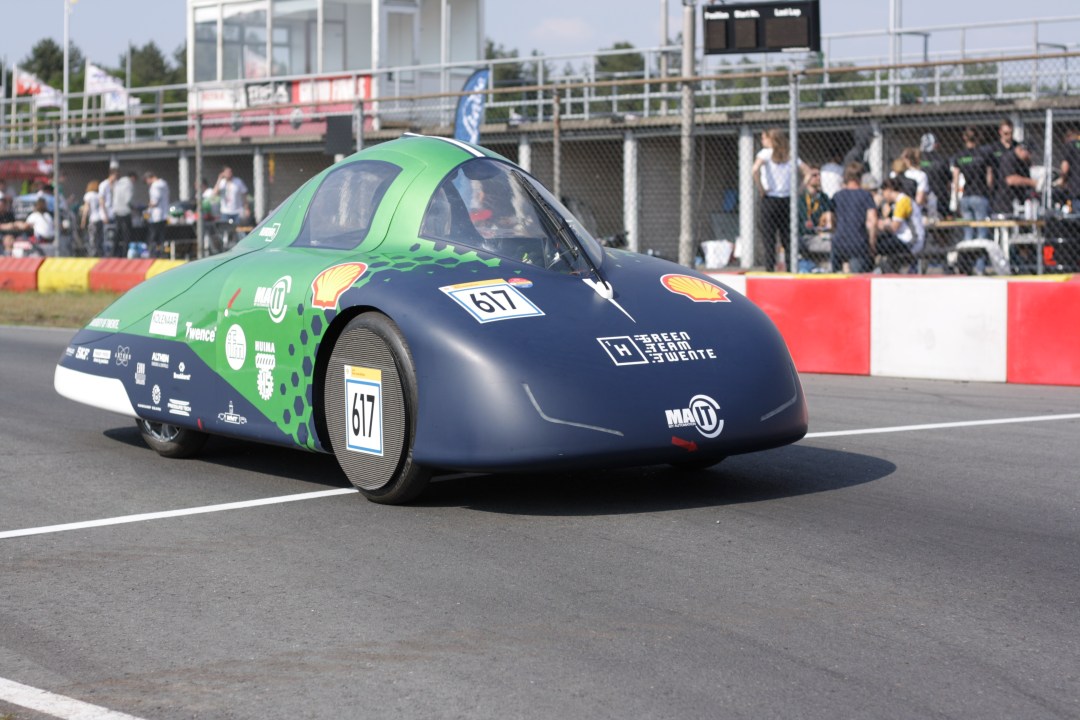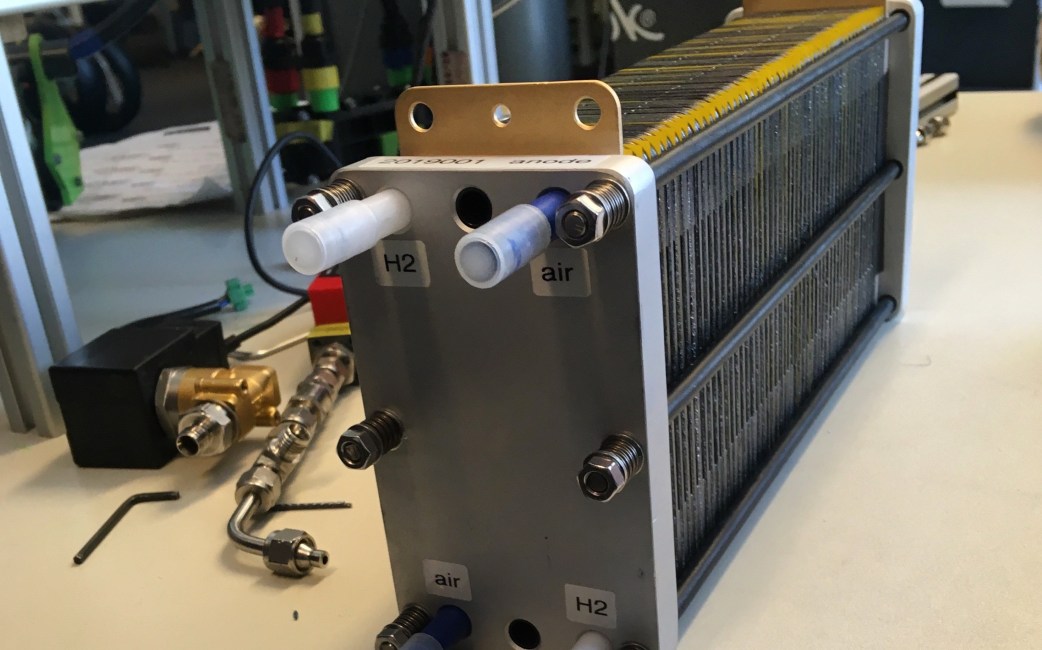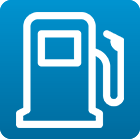Mass flow meter for a hydrogen fuel cell
Thermal mass flow meter with MEMS technology for control loop
The balance between reliability and maximum powerDe balans tussen betrouwbaarheid en maximaal vermogen
Green Team Twente is developing a hydrogen-powered car to compete in Shell's Eco-Marathon - a race to develop an ultra-efficient vehicle. The challenge: reliability. Because last year the car did not make it to the finish line due to overheated fuel cells. Otherwise, they would have been a good contender in the title race, as they potentially get about 900 km on 1 liter of fuel. That very low consumption requires a good flowmeter to accurately control the conversion process and gain insight into improvement opportunities. That is why they use a mass flow meter.
Marieke Altena, Hydrogen System Engineer, Green Team Twente
"This year our goal is to make the system reliable, but also to gain on efficiency where possible. With the mass flow meter, we will get a better understanding of the hydrogen usage of the system and the car during testing."
Challenges during the race
It is June 2019 and the Green Team Twente is feverishly working on making the final adjustments to its vehicle. During the last test - a race in May in Eindhoven - it turned out that the consumption is still too high, the range of the car is 1 liter of fuel is 210km and must be brought to 900km in a few weeks if they want to have a chance of winning the title at the Shell Eco-Marathon in London on July 5. Fortunately, the problem seems relatively easy to solve.
Last year, the team faced major challenges during the race: it was 30°C in London and the fuel cells overheated. In addition, the electronics suffered from interference. The finish was not achieved and the disappointment was huge, because on paper the car was a winner.

WHY THE SHELL ECO-MARATHON
Of course, the race must add something to the development work that automakers are already doing. That lies in the search for efficiency. For ordinary cars, this is not so important; after all, hydrogen is a "green" fuel, so it doesn't matter how much of it you use.
But Green Team and the Shell Eco-Marathon take a different view: hydrogen is far from being produced green. Therefore, driving economically will remain a focus for (many) years to come.
Shell is challenging the world to think with it about extremely fuel-efficient vehicles. Some 100 teams from around the world are competing in 2 classes: Urban Concepts and Prototypes.
URBAN CONCEPTS CLASS
These are cars that must meet a set of rules that makes them look more like practically useful vehicles. For example, these cars must have four wheels, lights, turn signals and a windshield wiper.
The rules are changed every year to ensure that the vehicles become more and more like "real" cars. This year, for example, a 2nd door has become mandatory. Possibly in subsequent years, multiple seats will become mandatory.
Green Team Twente has been competing in this class every year since 2011 and has been active in economy races since 1978. For the team, the choice of this class is logical: Green Team's goal is to promote hydrogen as a source for the future. The UrbanConcept class is suitable for this purpose because it has more social relevance as the vehicle is more similar to current cars.
Another Dutch participant in this class is the Hogeschool Arnhem Nijmegen (HAN).
PROTOTYPE CLASS
In the "Prototypes" class, there are much less strict rules and the limit of pure efficiency is explored. The result: a consumption of about 5000 km/liter. The TU Delft team participates in this (and is also sponsored by Teesing). There are rumors that their team has plans to come out with a vehicle in the Urban Concepts class in 2020.

Flowmeter monitors the process
At the time, the flow of hydrogen could not be read. Grip on the process was necessary to prevent the uncontrolled temperature rise that became fatal to them.
In principle, the reaction process in the fuel cell is faster as the temperature rises, but too hot also results in a loss of efficiency. The optimum is at 70°C.
The solution lies on two fronts: measuring and controlling the flow of hydrogen and a better regulated cooling system with a higher capacity.
A flow meter was chosen that is read via Modbus. This allows the team to control the mix of air and hydrogen in the fuel cell very precisely. Moreover, the team can correlate the data with data from other sensors in the system and thus optimize engine control, for example.
The fuel cell is further equipped with thermocouples to determine cooling requirements.
After testing in thermal cabinets, the system was tested under race conditions. During a race in Eindhoven in May, 3 hours were driven, with the temperature rising to just 70°C at an outside temperature of 25°C. And that was without using the new fans.
These are good prospects for the real thing and we wish the Green Team Twente every success at the Shell Eco-marathon in London!

Hydrogen fuel cell development

Fuel: 25g hydrogen (250 km)

Zero drift: repeatability

Top speed: About 50 km/h

WE MAKE YOUR TECHNOLOGY WORK
NL - Tel. +31 70 413 07 50
USA - Tel. +(1) 973 383 0691
CN - Tel. +86 (10) 56865822/56865835
TW - Tel. +886-(0)3-5600560